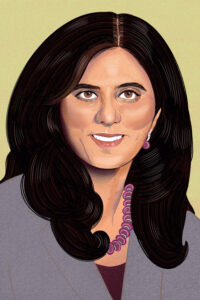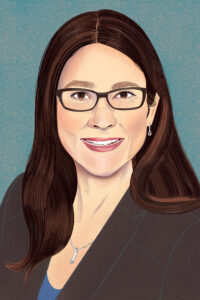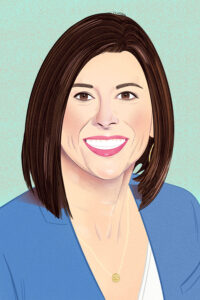Michelle Gruener is currently the Senior Manager of Cybersecurity Architecture and Engineering at SailPoint. Her journey into cybersecurity was not a traditional one as she graduated from Illinois State University with a major in Public Relations and a minor in Psychology and started her career in marketing and sales. Michelle has 20 years of experience across cybersecurity, technology management, product management, enterprise transformation, research and development, digital transformation and program management.… She has broad experience working within private and commercial sectors, including the insurance, financial and technology industries. She is known for her ability to adapt to lead very technical teams, and her agility, strategy and people skills that enable her to uplift any domain and team in short order. As such, she has a steadfast record of implementing strategic initiatives through building and enabling high-performing teams. Michelle has served in multiple cybersecurity, technology, and business leadership roles throughout her career and applied these experiences to deliver security architecture, infrastructure, web, mobile applications, customer relationship management (CRM) solutions, and enterprise transformation initiatives.
Currently, she leads a team delivering solutions across cloud security, data security, vulnerability management, endpoint detection and response, security information and event management (SIEM), security orchestration, automation and response (SOAR) and network security. Before joining SailPoint, Michelle served as Senior Product Manager in Enterprise Technology at State Farm Insurance, a Fortune 50 company and the largest insurance company in the United States, where she was responsible for partnering with agents to identify and deliver secure, innovative technology solutions that promote increased office productivity, improved customer service and increased business growth. Michelle is passionate about building an environment where her teams and those around her demonstrate the most authentic version of themselves, challenge the status quo and ignite a competitive drive to achieve their goals. Show more

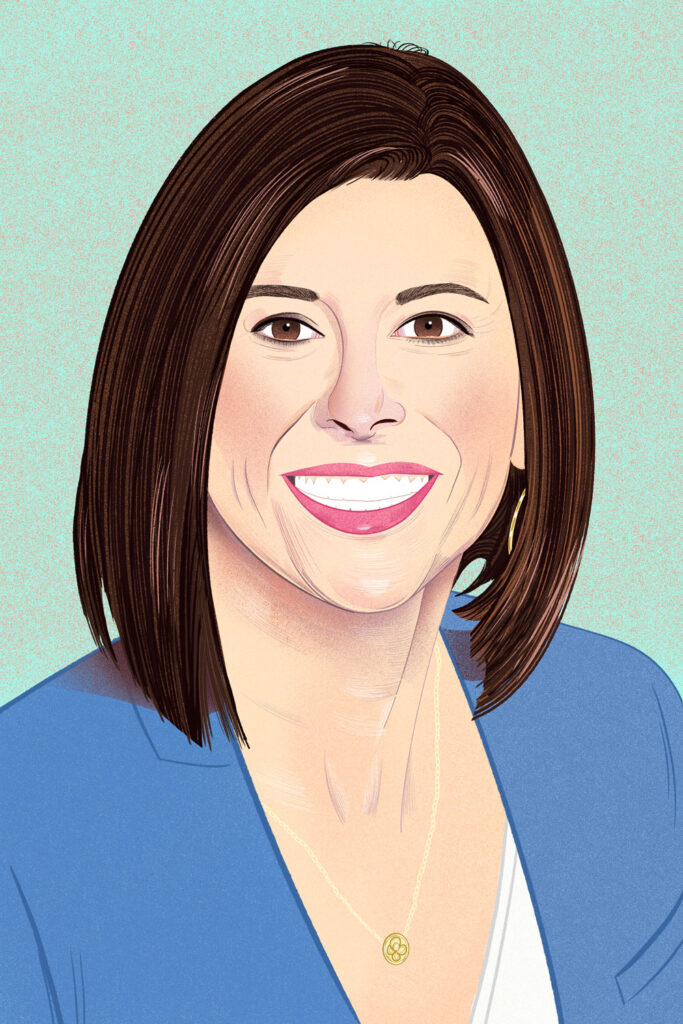
LEADERS IN CYBERSECURITY
Michelle Gruener
Senior Manager, Architecture and Engineering, Cybersecurity, SailPoint
What does a typical day of work look like for you?
Grab a cup of coffee, catch up on The Daily Skimm email and try to solve the day’s Wordle before checking Slack and Outlook on my phone for anything that needs immediate attention. I then take time to reach out to each of my teams via Slack to say good morning and see how they are doing and if there’s anything they need. I’ve found that this little gesture goes a long way with team members when working remotely. My day often consists of meeting with people across the organization, educating them on the work we are doing, removing roadblocks by pulling the right people together, meeting with my team members individually to discuss their work and their career goals, and working across the organization on strategic alignment of initiatives.
What aspects of your career journey have taken you by surprise?
I majored in public relations and minored in psychology, and I planned to work in marketing or journalism. I never thought about working in IT or cybersecurity because I thought you had to be a “techie” to work in those spaces. However, when I was offered a job as a project manager at eLearning because of my strong communication skills, people skills and ability to learn tech quickly, I took it. A few years later, I was surprised when I was asked to be the manager of an identity security and infrastructure security team without a background in security. Again, I said yes, and I worked with the team to understand their work, challenges and what they needed from me to help them be successful.
Tell us about the cyber project you're most proud of working on in your career.
My first cyber project is the one I am the proudest of because I achieved more than I ever thought I was capable of. This project was also the most challenging yet rewarding because of how the entire team came together and accomplished what we set out to do. It required late nights, weekends, blood, sweat, tears and success! I became a cybersecurity manager for the first time, built lifelong relationships with my team of about 40 engineers, and partnered with a phenomenal architect. We established a strategy and enabled the team to deliver an infrastructure security solution and an identity security solution as part of an enterprise initiative to build a high-availability platform from scratch in nine months that supported over 70,000 users.
How has public perception of cybersecurity changed over the course of your career, and how do you predict in the future?
Cybersecurity has evolved from the perception that people who work in the industry must get a college degree in security or computer science and protect people from hackers or identity theft. I am seeing the future happening now with the number of women in cybersecurity roles growing. These women come from a variety of backgrounds and are inquisitive, hungry to learn and passionate about solving complex problems to make our world more secure.
Tell us about your first job (can be anything!) and one lesson you might have learned from it.
My first job was as a marketing director for a nursing home. I was responsible for meeting with families of potential residents, which is a very emotional time for the families, including the resident. I learned that showing empathy and compassion for others and giving them your time goes a long way and have a lasting impact on people.
What’s one piece of advice you’d give your younger self about getting started in cyber?
When presented with an opportunity that is new to you, say yes! Be confident in yourself and what you are capable of achieving!
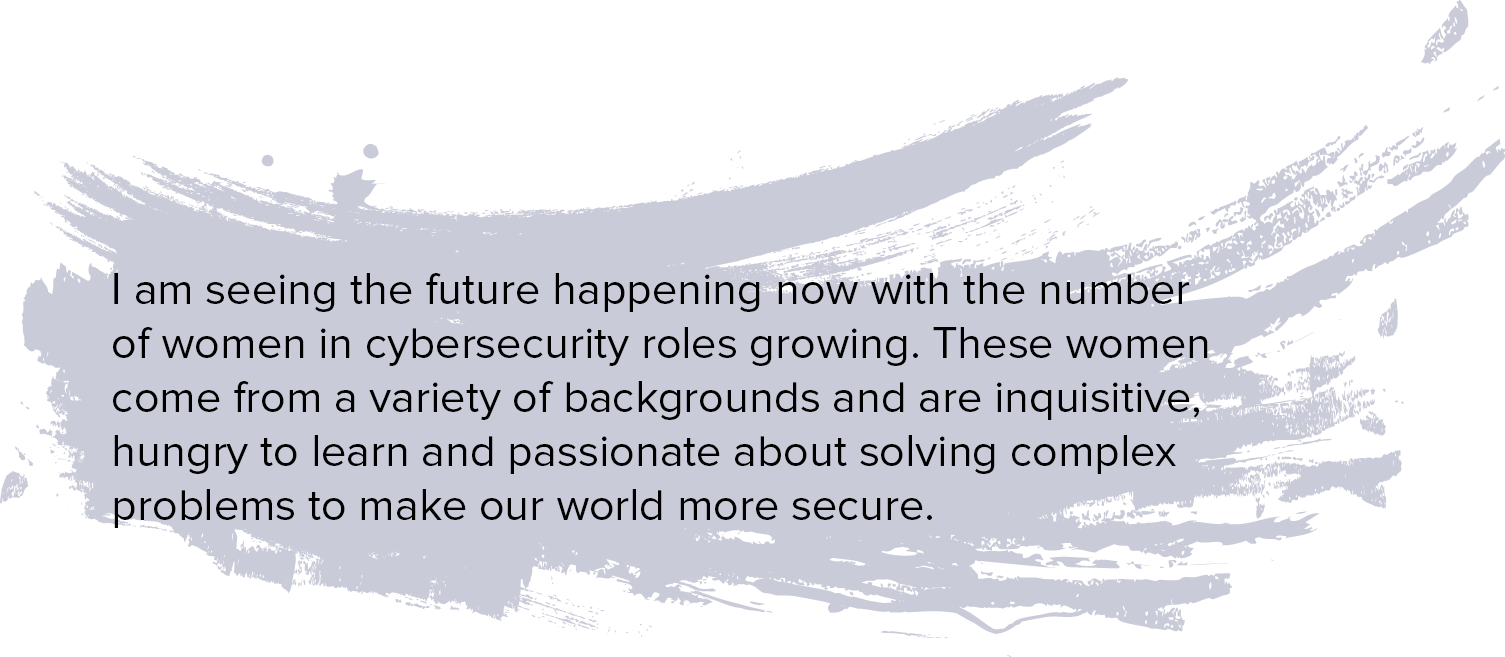
Tell us about a role model or mentor who has helped shape your career.
As I started my path toward formal leadership, I observed how different leaders behaved with their teams. A female director who was a mentor and role model demonstrated behaviors I appreciated and learned from working with her. She regularly asked her team questions to understand and help them think about things from different angles, had strong relationships with her peers, created a collaborative environment, supported and empowered her team and their decisions, and invested time in her employees and her own development. As I moved into my first manager role, I documented the key leadership behaviors that I held and continue to hold myself accountable to today. These behaviors have also enabled me to take on a variety of roles.
A meeting gets canceled and you have a surprise 30 minute window of free time — how do you spend it?
I’d take the opportunity to reach out to people I haven’t had a chance to chat with in a while to see how they are doing and if there is anything they need. I think it’s important to make sure that staying connected has to be intentional and a priority, especially in a virtual world.
What are the ways you stay grounded and take care of yourself?
It’s very easy to get wrapped up in work and allow it to consume your life, especially as you try to advance in your career. I was guilty of this behavior until my then 12-year-old called me out for working too much and not spending time with my kids and husband without my laptop. Being called out by your kids is the worst but most impactful. I made a change to ensure my family never felt like they weren’t a priority, and they continue to hold me to that. Nights and weekends are for the family unless there is an extenuating circumstance which I’ll talk through with them. I also prioritize exercise, whether it’s boot camp, yoga or walking the dog, which helps me be physically and mentally healthy for myself and my family.
When you think about your personal legacy as a leader, what do you hope people will remember?
My favorite quote and what I try to live by as a leader was best said by Maya Angelou: “People will forget what you said, people will forget what you did, but people will never forget how you made them feel.” I hope people who I had the good fortune of leading will always remember that I made them feel valued, seen, supported, empowered, challenged and able to be their authentic selves.


